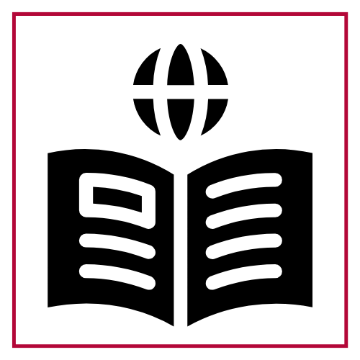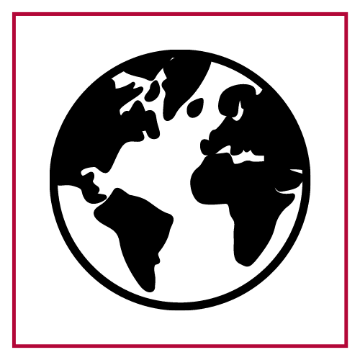Think of your global experience as a formative space where your distinct identities intersect in a once-in-a-lifetime opportunity to explore a different country and culture. As more students of different backgrounds and identities choose to have a global experience, Santa Clara University asks our community to participate in creating an environment where all students can thrive while abroad.
Thinking about identity abroad and its complexities in the context of another culture are something we hope you’ll embrace in advance of boarding your perspective. So it is important to understand how your own identity may play into your host culture experience abroad can help smooth how you acclimate and enable you to engage more easily and authentically with other students’ and host country residents’ personalities, ideas, perspectives, forms of expression and backgrounds.
The Oxford Dictionary defines intersectionality as "The interconnected nature of social categorizations such as race, class, and gender as they apply to a given individual or group, regarded as creating overlapping and interdependent systems of discrimination or disadvantage."
Santa Clara University encourages students to reflect on all of the different identities that they hold and imagine them intersecting to create you. What are your identities? Take into account nationality, ethnicity, sexuality, gender, religious affiliation, ability, etc.
"Privilege" refers to certain social advantages, benefits, or degrees of prestige and respect that an individual has by virtue of belonging to certain social identity groups. Within American and other Western societies, these privileged social identities—of people who have historically occupied positions of dominance over others—include whites, males, heterosexuals, Christians, and the wealthy, among others.
García, Justin D. 2018. “Privilege (Social Inequality).” Salem Press Encyclopedia.
Identities that may be privileged in the US may not experience the same privilege abroad. Similarly, identities that are marginalized in the US, maybe uplifted. We tend to define ourselves using different features of our personalities, backgrounds, and physical appearance. When preparing yourself to be immersed in another culture, it is important to consider all the different ways that you identify as an individual, recognizing how your identity might be perceived abroad and away as well as how you want to present yourself to your host community. One example of privilege that all students in global programs will hold is the ability to travel and hold a passport.
|
Check-in With Yourself
|
Inform Yourself
|
Take Action
|
Explore Programs
|
|
First, Check-in With Yourself with the Identity Abroad & Cultural Differences workbook. This tool will help cultivate self-awareness of your intersecting identities. |
Next, Inform Yourself by researching the applicable Identity Abroad Resource pages below, country-specific information pages, the Department of State |
Last, Take Action by reaching out to your program coordinator to discuss your intersecting identities and how they may be impacted or shift when abroad |
Now that you have learned more about your identity, explored the resources below, and spoken to the program coordinators, we encourage students to compare programs to find the program that meets their needs. |
Identity Abroad Resources
Faculty Resources
Tools to Help Students Prepare for their Global Experiences
The Unpacking Identity on Global Programs: Tools to Help Students Prepare for their Global Experiences Workbook and Exercise Guide provide opportunities for individual reflection and meaningful collaboration before inviting students to help establish the norms and expectations that will guide their interactions abroad. As a result, faculty and & Program Coordinators will get to know themselves at a deeper level, and students will begin to recognize this space as something different and exciting—a space where they are known and they matter.
Faculty & Program Guide
The Unpacking Identity on Global Programs: Faculty & Program Coordinators Guide is designed to equip faculty with the knowledge, skills, and resources for leading diverse student cohorts in education abroad programs. Your connection to each student as the professional traveling through this experience with them, and their relationships with one another, are critical to their success. As such, this resource guide provides a comprehensive list of strategies and recommendations to lead diverse students through an education abroad program.











